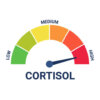
IBS is one of the most common digestive issues. Following a range of tests, excluding other known gut conditions, the diagnosis of IBS is usually given.
This can lead to patients exploring options with self-treatment involving diet and support, often with mixed results.
IBS often feels like a frustrating balancing act. Some days, your gut behaves. Other days, it feels like it has a mind of its own. With so much conflicting advice on what helps and what doesn’t, it’s understandable to be cautious, especially when you come across something like intermittent fasting.
In this article, we’ll explore what intermittent fasting is, how it might affect IBS, and whether it’s a realistic or helpful approach for those managing gut symptoms.
What Is Intermittent Fasting?
Intermittent fasting (IF) isn’t a diet in the traditional sense as it doesn’t dictate what you eat, but rather when you eat. It involves cycling between periods of eating and fasting, within a structured timeframe.
Common methods include:
· 16:8 method: 16 hours of fasting, 8-hour eating window
· 5:2 method: Eating normally five days a week and significantly reducing calories on two non-consecutive days
· Alternate day fasting: Fasting every other day
· Time-restricted eating: Eating within a set window each day (e.g., 10 a.m. to 6 p.m.)
The idea is that giving your digestive system longer breaks between meals might help regulate blood sugar, improve metabolism, and potentially reduce inflammation, all possible benefits for those with IBS.
How Intermittent Fasting Affects IBS
The relationship between intermittent fasting and IBS is still emerging, with limited but intriguing research. From a theoretical perspective, fasting allows the gut to rest, potentially reducing bloating, cramping, or urgency that some people experience after eating.
One of the most relevant concepts here is the migrating motor complex (MMC), a wave-like muscle contraction that helps clear out food, bacteria, and debris from the digestive tract between meals.
The MMC is only activated in when we’re not eating, and fasting may give it more time to do its job effectively. In people with IBS, particularly those with SIBO (small intestinal bacterial overgrowth), supporting this natural cleansing mechanism might be beneficial.
This period of food rest also helps to reduce inflammation in the gut. Another possible underlying issue or component of the underlying causes of IBS.
However, not all types of IBS respond in the same way. Some people find longer fasting windows worsen their symptoms, especially if hunger triggers stress or if a long delay in eating leads to large meals, which can overwhelm the gut.
Potential Benefits of Fasting for IBS
Although clinical studies specifically on intermittent fasting and IBS are limited, anecdotal reports and small observational studies suggest a few potential benefits:
· Improved Bowel Regularity: Some people, particularly those with IBS-C (constipation dominant), notice improved bowel movements due to more predictable eating and fasting rhythms.
· Reduced Bloating: Fewer meals can mean fewer opportunities for gas and bloating, especially when meals are well-balanced and low in known IBS triggers.
· Enhanced Gut Motility: As mentioned, longer fasting periods can support the MMC, which helps keep the small intestine clear, a key factor in managing SIBO and related IBS symptoms.
· Lowered Inflammation: Some studies on intermittent fasting have linked it to reduced markers of inflammation, a potential benefit for IBS, which can involve low-grade gut inflammation in some individuals.
· Improved Mind-Body Connection: Mindful fasting (when done intentionally and safely) can increase awareness of hunger and fullness cues, potentially helping those who experience emotional eating or stress-related flares.
Risks and Considerations When Fasting with IBS
While fasting may offer benefits, it’s not suitable for everyone, especially without personalised guidance.
Here’s what to be cautious about:
· Stress Response: Skipping meals or going long periods without food may increase cortisol (a stress hormone), which can worsen gut symptoms in some individuals.
· Overeating in Feeding Windows: Large meals can overwhelm the digestive system, leading to discomfort, bloating, or diarrhoea, common in IBS-D (diarrhoea-dominant IBS).
· Nutrient Deficiency Risk: If fasting reduces your overall food intake, you may struggle to get enough fibre, vitamins, and minerals, all important for gut health.
· Disordered Eating Patterns: For some, particularly those with a history of restrictive eating or food anxiety, fasting can trigger unhelpful patterns.
· Worsened Constipation: In IBS-C, delaying meals too long may reduce the natural gastrocolic reflex (the urge to move bowels after eating), leading to more sluggish digestion.
Fasting Methods: Which Is Right for You?
If you’re considering experimenting with intermittent fasting for IBS, it’s crucial to start gently. Not all fasting approaches are appropriate for gut-sensitive individuals.
Here’s a breakdown of the most IBS-friendly options:
· Time-Restricted Eating (12:12 or 14:10): A mild fasting approach that offers a fasting window overnight without causing extreme hunger. This may be gentler on the gut and easy to integrate into daily life.
· 16:8 Fasting: More restrictive, and may work for some people, especially if meals are nutrient-dense and balanced. It’s important not to binge at the end of the fasting window.
· Avoid Alternate-Day or 24-Hour Fasts: These can be too aggressive and may cause symptom flare-ups, especially for those with a sensitive gut or blood sugar instability.
Always prioritise hydration, gentle movement, and regularity in meal timing — all of which support digestive function alongside any fasting strategy.
How Long Does It Take to See Results?
Patience is key. If intermittent fasting is going to help, most people notice subtle changes within 2–4 weeks. That might include:
· More predictable bowel habits
· Less bloating or discomfort
· Better energy or sleep patterns
However, if symptoms worsen, or you feel more anxious, tired, or unwell, that’s a clear signal to re-evaluate the approach.
Alternatives to Fasting for IBS Management
If fasting feels too restrictive or doesn’t suit your lifestyle, you’re not out of options. There are many evidence-based strategies that can be tailored to your unique needs:
· Low FODMAP Diet: A short-term elimination and reintroduction plan to identify trigger foods.
· Meal Spacing: Leaving 3–4 hours between meals to support MMC activity without extended fasting.
· Mindful Eating: Slowing down meals, chewing thoroughly, and reducing distractions.
· Stress Management: Breathwork, yoga, or CBT techniques to calm the gut-brain axis.
· Probiotics or Targeted Supplements: Depending on symptoms and gut microbiome needs.
· Pelvic Floor Therapy: Especially useful for IBS-C or those with defecation issues.
Consulting with Healthcare Professionals
Before you make any changes to your eating pattern, particularly one as significant as intermittent fasting, it’s always wise to speak to a specialist.
A registered dietitian or nutritionist trained in IBS management and treatment can help you weigh the pros and cons of fasting, guide you toward the most appropriate method, and ensure you’re meeting your nutritional needs.
Similarly, if you suspect SIBO or have severe IBS symptoms, more specific treatments can be considered that go beyond dietary approaches.
Conclusion: Is Intermittent Fasting the Right Approach for Managing IBS?
There’s no one-size-fits-all when it comes to IBS, and that includes fasting. For some, intermittent fasting offers relief: less bloating, more rhythm to their digestion, and a sense of gut calm. For others, it may feel like another layer of stress or restriction in an already complicated relationship with food.
Contact us today for an initial gut health assessment.
References
Medical News Today – Intermittent fasting and IBS: Benefits, risks, and methods
Healthline – IBS Fasting: Benefits, Risks, Why It May or May Not Work
FODMAP Everyday – Intermittent Fasting & IBS
NutritionFacts.org – Friday Favorites: Fasting for Irritable Bowel Syndrome
Time – How Fasting Can—and Can’t—Improve Gut Health
Digestive Wellness Clinic – SIBO and the Migrating Motor Complex
Gutivate – The Role of the Migrating Motor Complex in IBS and SIBO
PubMed (ResearchGate) – Effects of fasting therapy on irritable bowel syndrome
Frontiers in Nutrition – The impact of intermittent fasting on gut microbiota: a systematic review
Last Updated
Uploaded by Martin Cohen on 09/08/2025






